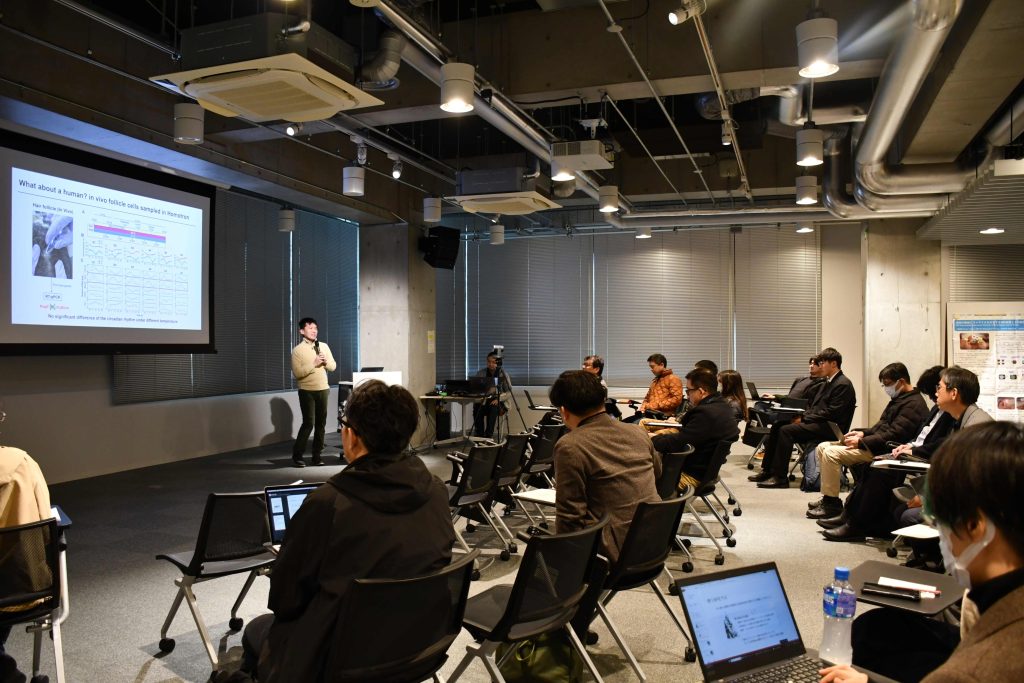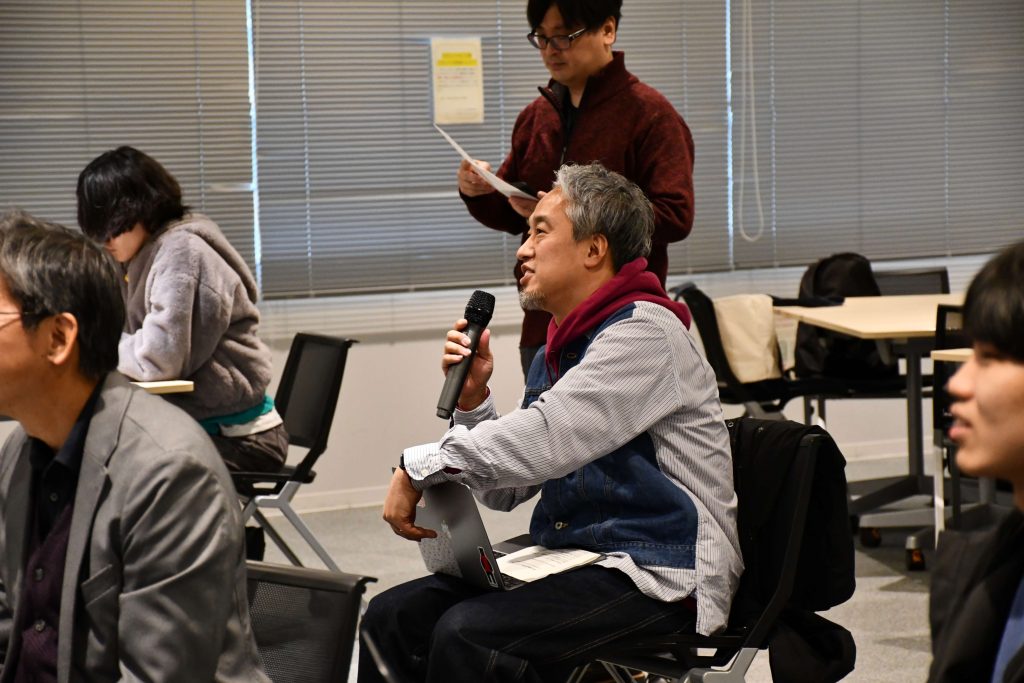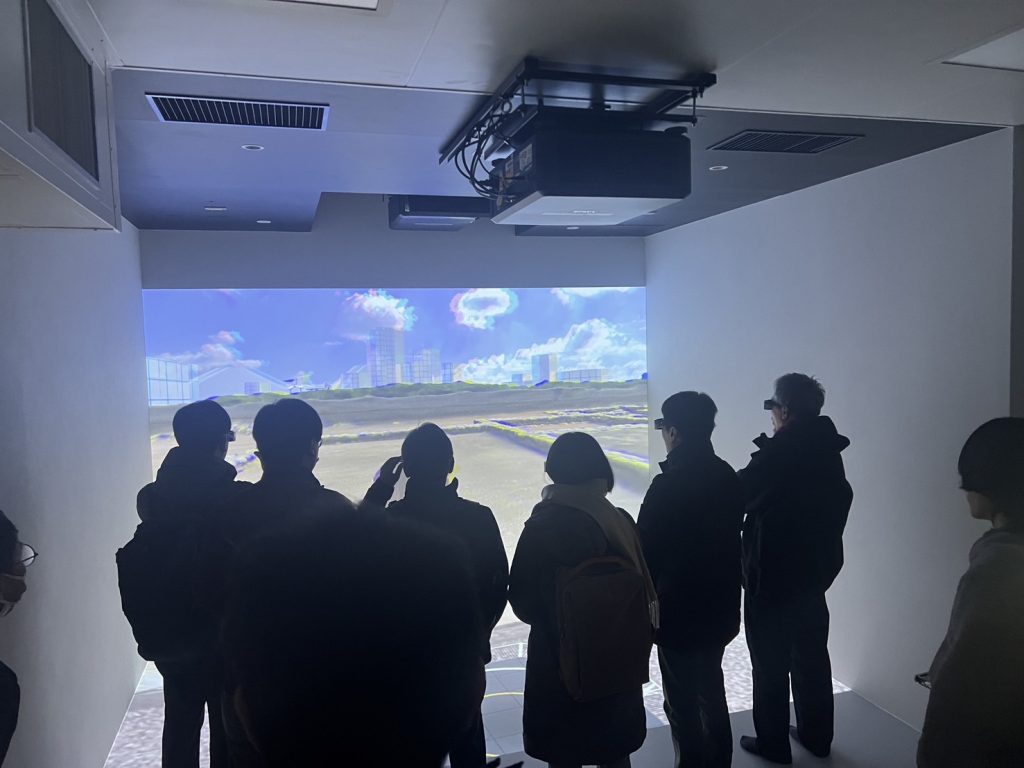
On Tuesday, March 18, 2025, the “MulSHIP Small Grants Debriefing Session” was held at the Design Commons of the Faculty of Design, Kyushu University.
This session provided an opportunity for faculty members who are conducting research as part of this project, which has been adopted by the Ministry of Education, Culture, Sports, Science and Technology (MEXT) as a budget request project, to report on the results, progress, and current issues of the 2024 year’s research while incorporating a multiverse perspective.
Thirty-two people attended the event, including 15 presenters, who gave their presentations, followed by a lovely Q&A session.
The themes of the presentations were as follows:
・Research on animal intestinal microflora that links symbiosis and survival between humans and non-human animals
・Development of content that adapts to people’s physical characteristics in virtual space
・Research on the adaptation of human behavior to physical and virtual spaces in mixed reality
・Non-invasive genetic information acquisition
・Development and implementation of a 260-degree live medical broadcasting system that considers feasibility for the provider
・Acceleration of head rotation measurement in contact-free levitating HMDs
・Metabolic modeling and digital simulation of the gut microbiome
・Development of telecounseling technique in a multiverse space
・Development of a citizen-participatory urban planning tool using VR/gamification
・Examination of factors related to VR technology tolerance
・Development of a training space for endoscopic submucosal dissection using VR
・Research on VR environments and their effect on sleep, circadian rhythm, and brain function
After the presentations, the recently renovated Research Center for Human Environmental Adaptation was unveiled, and participants were able to experience the multiverse model spread over two surfaces.
Through this debriefing session, opinions were exchanged from a variety of perspectives, providing an opportunity for new ideas and research challenges to emerge. The progress of each research project will be the focus of further attention in the coming fiscal year.
This session provided an opportunity for faculty members who are conducting research as part of this project, which has been adopted by the Ministry of Education, Culture, Sports, Science and Technology (MEXT) as a budget request project, to report on the results, progress, and current issues of the 2024 year’s research while incorporating a multiverse perspective.
Thirty-two people attended the event, including 15 presenters, who gave their presentations, followed by a lovely Q&A session.
The themes of the presentations were as follows:
・Research on animal intestinal microflora that links symbiosis and survival between humans and non-human animals
・Development of content that adapts to people’s physical characteristics in virtual space
・Research on the adaptation of human behavior to physical and virtual spaces in mixed reality
・Non-invasive genetic information acquisition
・Development and implementation of a 260-degree live medical broadcasting system that considers feasibility for the provider
・Acceleration of head rotation measurement in contact-free levitating HMDs
・Metabolic modeling and digital simulation of the gut microbiome
・Development of telecounseling technique in a multiverse space
・Development of a citizen-participatory urban planning tool using VR/gamification
・Examination of factors related to VR technology tolerance
・Development of a training space for endoscopic submucosal dissection using VR
・Research on VR environments and their effect on sleep, circadian rhythm, and brain function
After the presentations, the recently renovated Research Center for Human Environmental Adaptation was unveiled, and participants were able to experience the multiverse model spread over two surfaces.
Through this debriefing session, opinions were exchanged from a variety of perspectives, providing an opportunity for new ideas and research challenges to emerge. The progress of each research project will be the focus of further attention in the coming fiscal year.
| Link |
|---|






